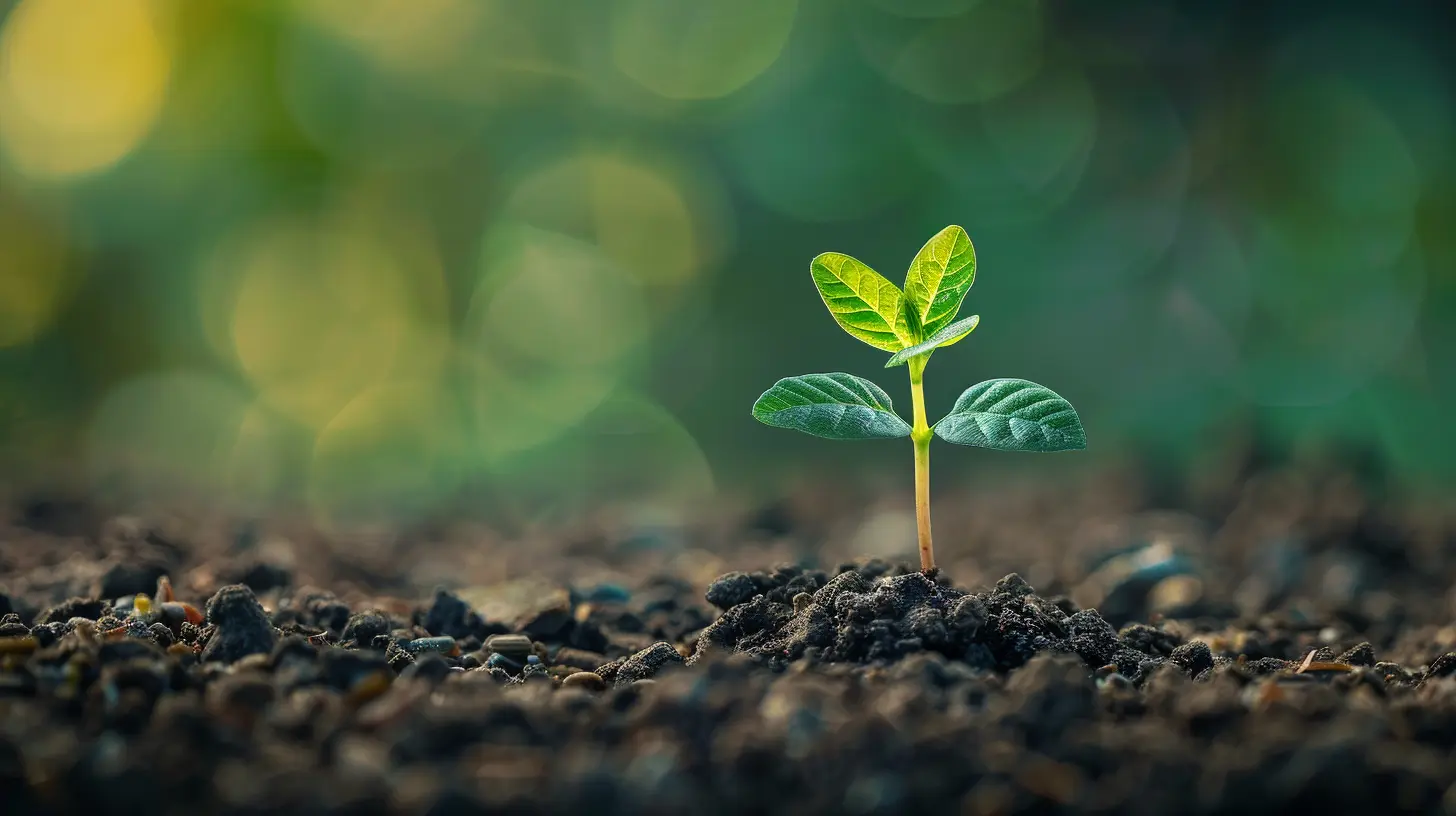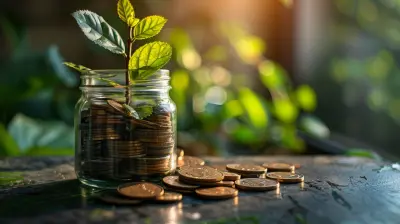The Compounding Effect: How Small Changes Lead to Big Results
14 July 2025
Have you ever wondered why some people seem to achieve massive success while others, who work just as hard, don't get very far? It's not always sheer talent or luck. More often than not, it comes down to something much simpler—small, consistent actions that snowball over time. Welcome to the magic of the compounding effect.
This concept isn’t just for finance geeks or investor types—it applies to your habits, your health, your career, and yes, definitely your money. Buckle in, because once you truly get this idea, it could literally change your life.
What Is the Compounding Effect, Really?
Alright, let’s break it down. The compounding effect is the process where small actions, repeated over time, result in significant outcomes. It’s what happens when the results of your efforts start generating results of their own. Think of it like a snowball rolling down a hill. It starts small, but as it rolls, it picks up more snow, gets bigger, and moves faster.In the financial world, you see this with compound interest. You earn interest on your original investment and then start earning interest on the interest. It’s exponential growth in motion.
But here's the kicker—it’s not just for money. The same principle applies to almost anything worth achieving in life.
Why Small Changes Feel So... Well, Small
Let’s be honest—most of us are kind of impatient. We want big muscles after a week at the gym. We want our savings to double in a few months. And when that doesn’t happen, we give up.The problem? We underestimate what small actions do in the long run. The compounding effect is subtle. Downright boring, even.
But trust me, it’s working—just very quietly.
Imagine improving just 1% every day. Not much, right? But over the course of a year, you’re not 365% better. Thanks to compounding, you’re actually 37 times better. That’s the power of small gains, multiplied over time.
The Financial Side of Compounding: Interest and Investments
Okay, let’s talk money for a second. This is where compounding has real, tangible impact.Compound Interest: The Eighth Wonder of the World?
Albert Einstein reportedly called compound interest the eighth wonder of the world. Whether or not he actually said that, the point remains—it's powerful.Let’s say you invest $1,000 with an annual return of 7%, and you leave it alone. In 10 years, it becomes around $1,967. In 20 years? About $3,870. In 30 years? Over $7,600.
You didn’t do anything extra. You just let time and consistency do the work. That’s compounding in action.
The Key Ingredient? Time.
The secret sauce in this whole equation is time.The earlier you start, the better. Even small contributions at a young age can snowball into life-changing amounts over decades. Waiting to start saving or investing is like trying to plant a tree the day before you need shade. It just doesn’t work that way.
Beyond Money: The Compounding Effect in Your Daily Life
Let’s step away from spreadsheets for a moment. Because the compounding effect isn’t just about dollars and cents.Habits: Your Brain’s Investment Strategy
Your daily habits are your brain’s version of compound interest. Wake up a little earlier. Read 10 pages a night. Choose the salad over the fries. These don’t seem like life-altering moves now, but stack them up over time, and they completely redefine your life trajectory.It’s like putting bricks into a wall. One brick on its own doesn’t look like much. But lay one a day, and pretty soon—boom—you’ve built a fortress.
Skills and Knowledge: The More You Learn, the More You CAN Learn
Ever picked up a new skill and suddenly found it easier to learn the next one? That’s compounding in your brain.Let’s say you spend just 15 minutes a day learning about personal finance or a new language or coding. At first, it’s slow. But then you start connecting the dots. Your brain adapts. Before you know it, you're fluent in topics that used to overwhelm you.
Tiny Decisions That Change Everything
Here’s where things get real. Every day, you make dozens—maybe hundreds—of tiny decisions. Most of them seem trivial. Do you scroll through social media or read a book? Do you grab that coffee out or make one at home?Alone, these don’t feel like life-or-death choices. But multiplied by 365 days? By 10 years?
Those small choices compound into radically different lives.
- Saving $5 a day on coffee isn’t just $5—it’s more than $1,800 a year. Invest that, and it snowballs.
- Walking 20 minutes a day doesn’t just burn calories—it boosts your heart health, mood, and energy levels.
- Writing one blog post a week equals 52 a year. That’s how you build a brand.
The question is: are your daily choices working for you or against you?
The Dark Side of the Compounding Effect
Yep, there’s a flip side.Compounding works both ways. Bad habits compound, too.
A little debt here, skipping the gym there, ignoring your budget—it slowly adds up until it's a mountain of problems. And just like the positive version, you may not notice the impact until it feels too late.
So, if you’re going to take anything from this article, take this: If you don't intentionally design your habits, your habits will design your life—for better or worse.
The "1% Better" Philosophy
James Clear, author of Atomic Habits, popularized this idea of getting just 1% better every day. That’s not a push to be perfect. It’s a push to keep moving.Progress isn’t about huge leaps. It’s a series of tiny, almost unnoticeable steps in the right direction.
One workout doesn’t change your body. One savings deposit doesn’t build wealth. One blog post doesn’t make you a writer.
But they’re all signals that you’re heading toward something bigger.
Tools to Track Your Progress
Let’s face it—it’s hard to stay motivated when you don’t see the results right away.Here are a few ways to stay on top of your compounding goals:
- Habit Trackers: Apps like Habitica, Streaks, or a good old-fashioned calendar.
- Financial Apps: Use tools like Mint, YNAB, or Personal Capital to track your money growth.
- Journaling: A simple notebook can help you reflect on your progress and identify patterns.
Seeing the data helps you stay consistent, and consistency unlocks compounding.
How to Start Applying the Compounding Effect Today
Ready to get started? You don’t need to do everything at once. In fact, that’s the opposite of the compounding mindset.Here’s a simple game plan:
1. Pick One Area to Improve – Whether it’s money, health, or learning, start with just one.
2. Choose a Micro Habit – Something so small it feels easy. Think 5 pushups, $1 saved, 5 minutes of reading.
3. Be Consistent – Miss one day? No problem. Miss two? You’re forming a new (bad) habit.
4. Track It – Write it down, track your streak, or just check in with a friend.
5. Level Up Gradually – Once the small change becomes easy, build on it. That’s how you scale.
The Final Word: Small Wins, Big Life
Look, real success isn’t sexy. It’s not overnight. It’s not even all that exciting at first. It’s small wins repeated day after day, boring acts of discipline that produce extraordinary outcomes.The compounding effect is like planting seeds. With patience, water, and sunlight (aka your consistent effort), you create a garden that feeds you for years.
So ask yourself: What small action can I start today that my future self will thank me for?
The best part? You don’t have to do it all. Just take the first step. Then take it again tomorrow. That’s where the magic happens.
all images in this post were generated using AI tools
Category:
Compound InterestAuthor:

Angelica Montgomery
Discussion
rate this article
1 comments
Victor Pope
Small changes are not just minor tweaks; they're powerful catalysts. Embrace the compounding effect and watch your financial future transform—no excuses, just results. Start today!
August 1, 2025 at 11:41 AM

Angelica Montgomery
Absolutely! Small changes can lead to remarkable transformations over time. Embracing the compounding effect can truly reshape our financial futures. Let's take that first step today!


